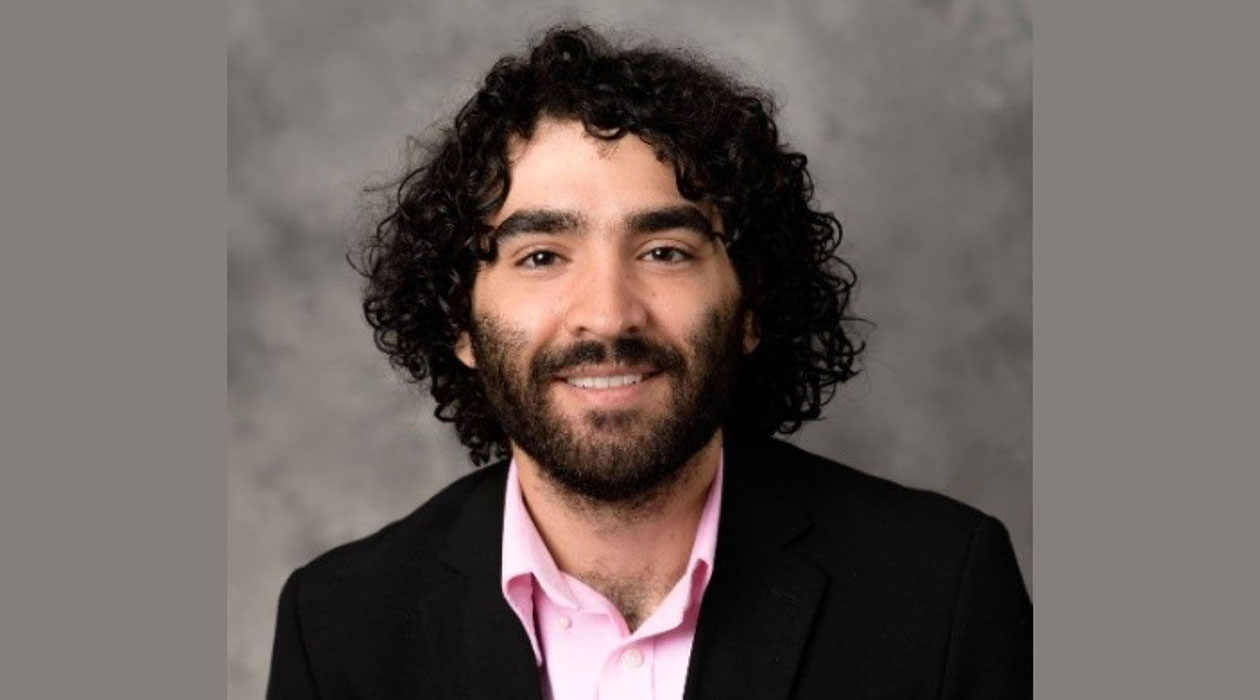Joseph Fernandez

“Change your stars and live a better life than I have.” It’s from the movie “A Knight’s Tale,” which was my go-to movie growing up. / Joseph Fernandez
Joseph Fernandez is a postdoctoral researcher at the Genomics and Eco-evolution of Multi-Scale Symbioses Institute at the University of Illinois Urbana-Champaign.
Over the past few years, universities have come to recognize the importance of diversity, equity, and inclusion in their academic environments. Although most measures aim at increasing the representation of populations who have been long overlooked because of race, ethnicity, nationality, gender, or sexual identity, few have considered the effects of poverty. Long hours and low pay is enough to turn anyone off from such jobs, and yet, Joseph Fernandez persevered.
Growing up in Bangor, Maine, Fernandez was always interested in science. “Even as a little kid, I dreamt of becoming a scientist,” he said. “I would read magazine articles or read all the chapters in the book during science class. I wanted to help make the world a better place.”
One of the biology classes that stood out the most to him was about Huntington’s disease—a rare, inherited disease that causes the progressive breakdown of nerve cells in the brain. “When I was in sixth grade, I remember reading about how awful it was and at that moment I knew that I wanted to do something that would benefit human health.”
Although he was initially interested in going into medicine, Fernandez decided to pursue a PhD degree. After completing his undergraduate degree in neuroscience at Yale, he enrolled in the graduate program for biomedical engineering at Purdue University. There he focused on central auditory processing disorders, in which the ears and the brain do not work well together, following traumatic brain injury.
It was during his PhD program that Fernandez first encountered the financial challenges that PhD students can encounter. “I come from a poor family and my whole PhD experience was painful because of the financial stress,” Fernandez said. “At one point I got a prestigious fellowship, which is supposed to be good for your career, but financially it almost ruined me.”
Fernandez received his fellowship through federal funding, which was treated as financial aid. As a result, he was unable to get any additional loans. “When you are a research or teaching assistant, it is treated as a salary and you can get supplementary student loans to make a measly salary,” Fernandez explained. “However, the fellowship was treated as financial aid so I was locked out of loans. If I had known, I probably wouldn't have applied.”
Ultimately, Fernandez was able to graduate and now he tries to advocate for other financially disadvantaged students. “If you look at the statistics, it is extremely difficult for poor, low income, marginalized students to get into PhD programs. We need to fix these underlying problems,” Fernandez said.
Fernandez is currently a postdoctoral researcher in the labs of Cari Vanderpool (MME co-theme leader/IGOH), a professor of microbiology, and Katy Heath (IGOH), a professor of plant biology. He studies the symbiotic interactions between beans and their microbe partners, which supply nitrogen to their plant host. “I compare the RNA expression levels in the bacteria under different conditions, for example in the presence of high nitrogen concentrations,” Fernandez said.
He is very excited about his new work and research environment at the IGB. “In addition to picking up genetics training, which will be useful for my future career goals, I have two amazing mentors who have created amazing work environments,” Fernandez said.
Going forward, Fernandez is unsure about which career path he wants to pursue. “I would like to stay in academia, but there are a lot of financial issues that make it difficult—salary changes have not kept up with the economy and inflation,” he said. “We also have to do more to promote diversity in academia because I struggled with implicit forms of racism as a Latino. I have often felt like I don’t belong.”
When he’s not working on plants in the lab, Fernandez spends time working on his garden. As a member of 4-H, a US-based network of youth organizations, Fernandez learned how to cultivate a garden when he was a child. “If we had the apocalypse right now, you would want me on your team because I have learned so many skills from them,” Fernandez said. “I love gardening because experiencing the beauty of nature is the closest I have gotten to spirituality. I also like cooking with food from my garden; a good summer day is when I make a fresh Pico de Gallo from my garden tomatoes.”
